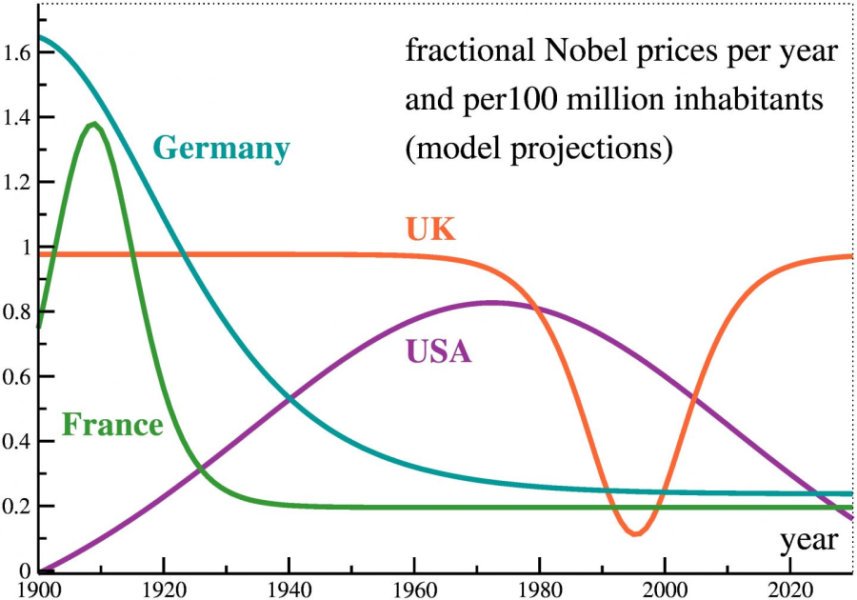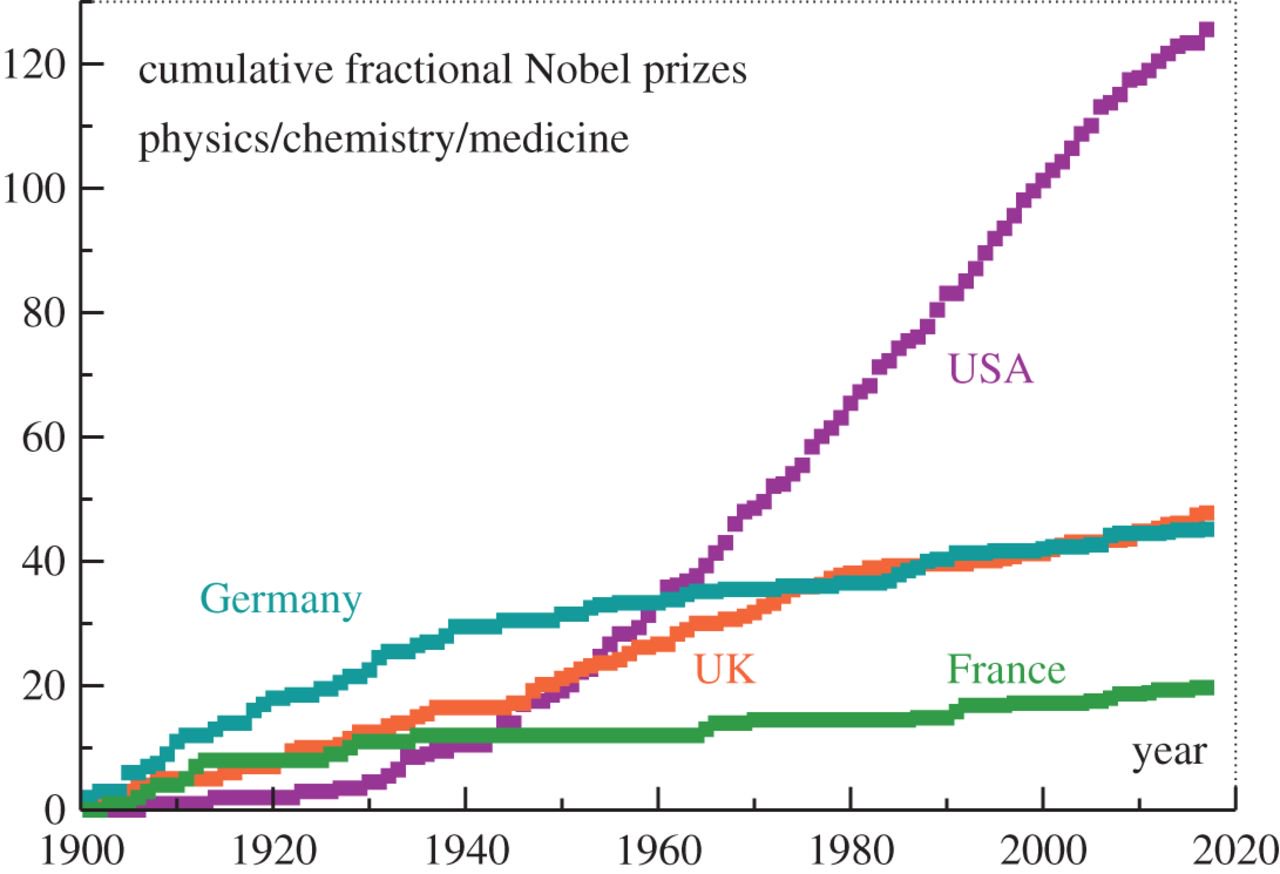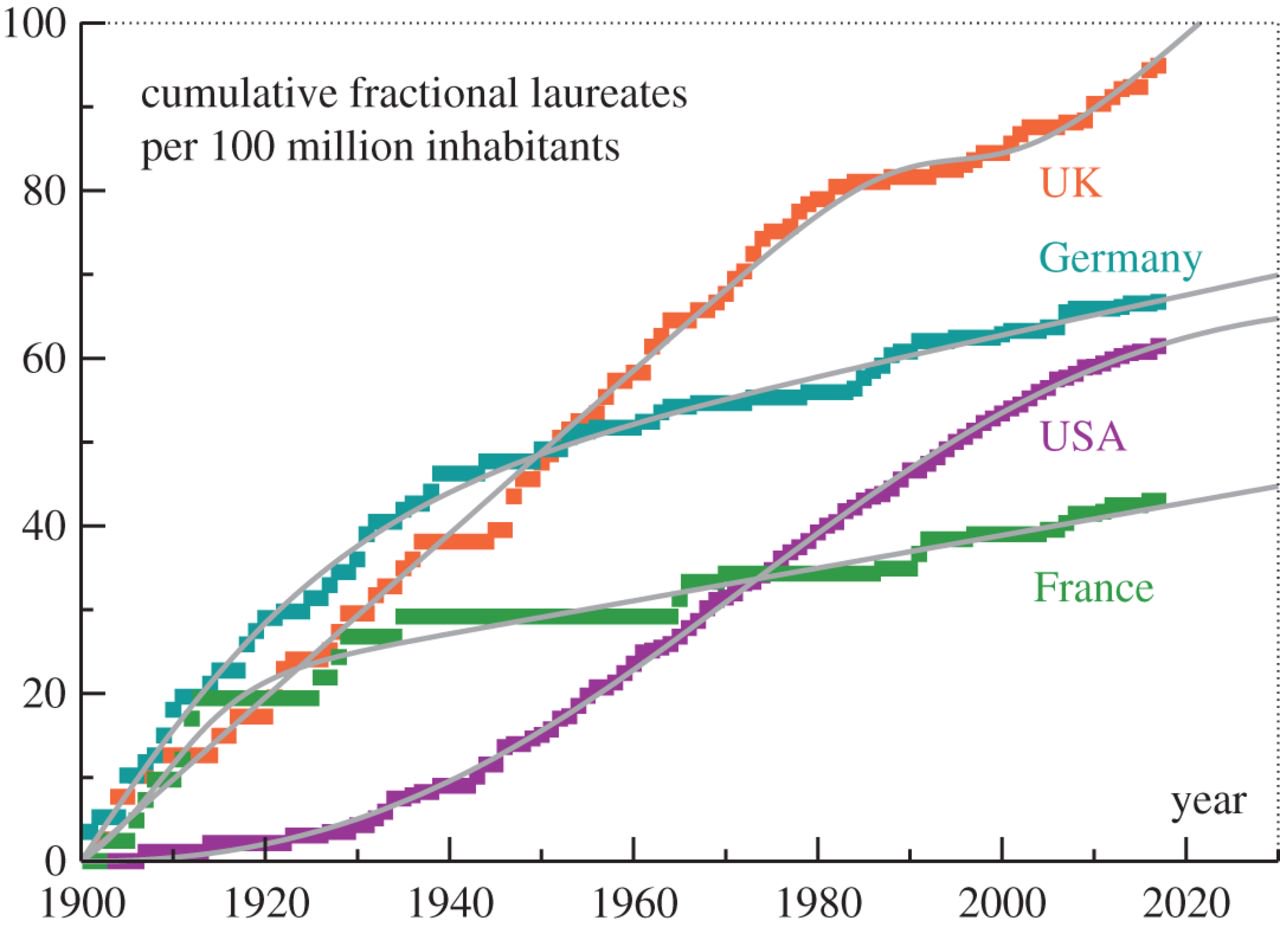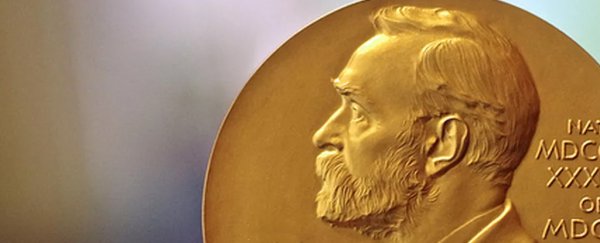For over a century, the US has been a global leader in scientific research and innovation. Along with scientists from the United Kingdom (UK), France and Germany, US scientists have led the world in Nobel prizes for physics, chemistry and medicine.
Now, however, a new study has revealed America's steady decline in Nobel prizes for science over the past few decades.
"The US era is approaching its end," said Claudius Gros.
"Since its zenith in the 1970s, US Nobel Prize productivity has already declined by a factor of 2.4."
And, according to Gros' calculations, the decline isn't stopping anytime soon.
"Our model predicts that starting in 2025 the productivity of the USA will be below that of Germany, and from 2028, below that of France as well," he said.

This is not to say that the US is no longer contributing to our collective understanding, nor does it suggest an overall decline in America's science performance.
"National research advancement can undoubtedly also be successful independent of Nobel Prize productivity," said Gros.
"Especially because new areas of research such as the computer sciences — a typical US domain — are not included."
However, the study does give some important indications about the state of scientific discoveries in the US.
Just looking at the raw numbers, the US has received the most Nobel Prizes in science by far.

But this isn't enough data to predict Nobel prize wins in the future.
"The decline of the US per capita productivity of science Nobel laureates has been masked hitherto by the concurring increase of the US population," Gros argued in his study.
After catering for each nation's population, Gros created an algorithm to determine what he calls "Nobel productivity."

Gros argues that Nobel productivity can be measured using two key factors. The first is a long-term, yearly success rate, which is based on population figures for each country, and the second is when each country has experienced a boom in Nobel prizes.
Right now, the success rate for the USA sits somewhere around 0.34, about the same as France and Germany. But that's a steep decline from the US success rate in the 1970s - down by a factor of 2.4 to be exact.
Meanwhile, the UK has been far more steady. In contrast, they have managed to retain a success rate of 0.9 to 1.0 for the last century.
"The entire US history of science Nobel prizes can be interpreted in terms of a single large productivity boost peaking in 1972," the study concluded.
"The extraction of a long-term basic productivity rate, if such a rate should be present, is pre-empted by the extraordinary long decay time of 29 years. A steady state with regard to scientific research has yet to be reached."
The big question here is whether the ongoing decline of Nobel productivity in the US is cause for alarm.
The study has been published in Royal Society Open Science.
Science AF is ScienceAlert's new editorial section where we explore society's most complex problems using science, sanity and humor.
